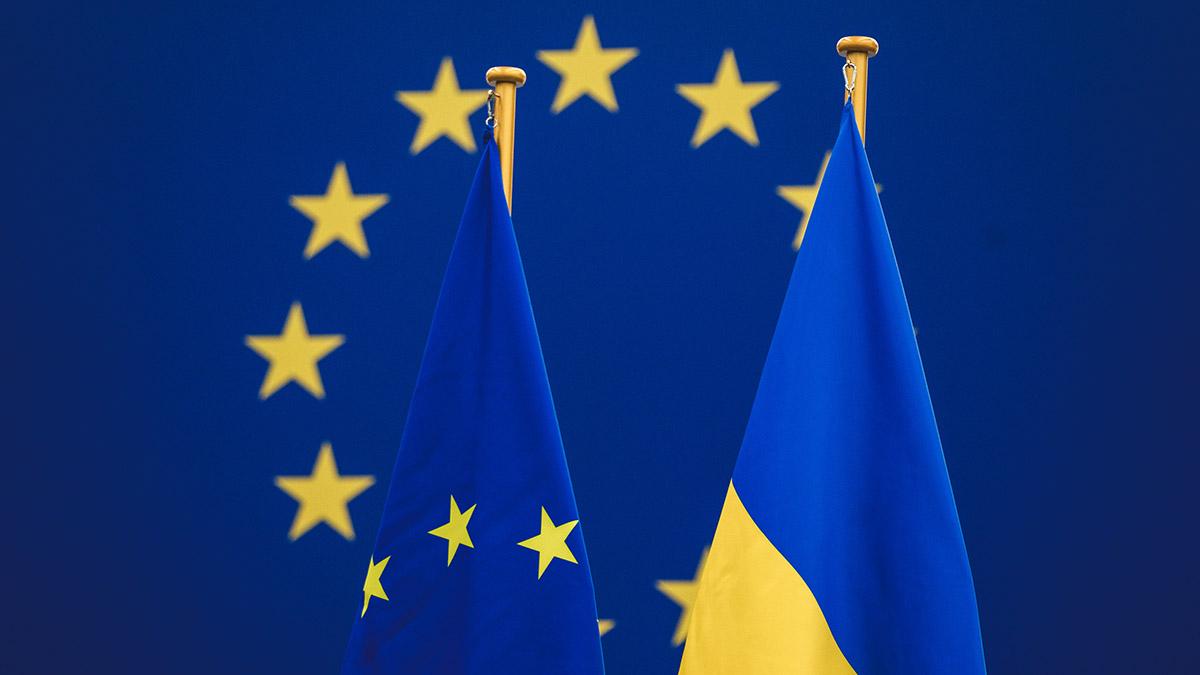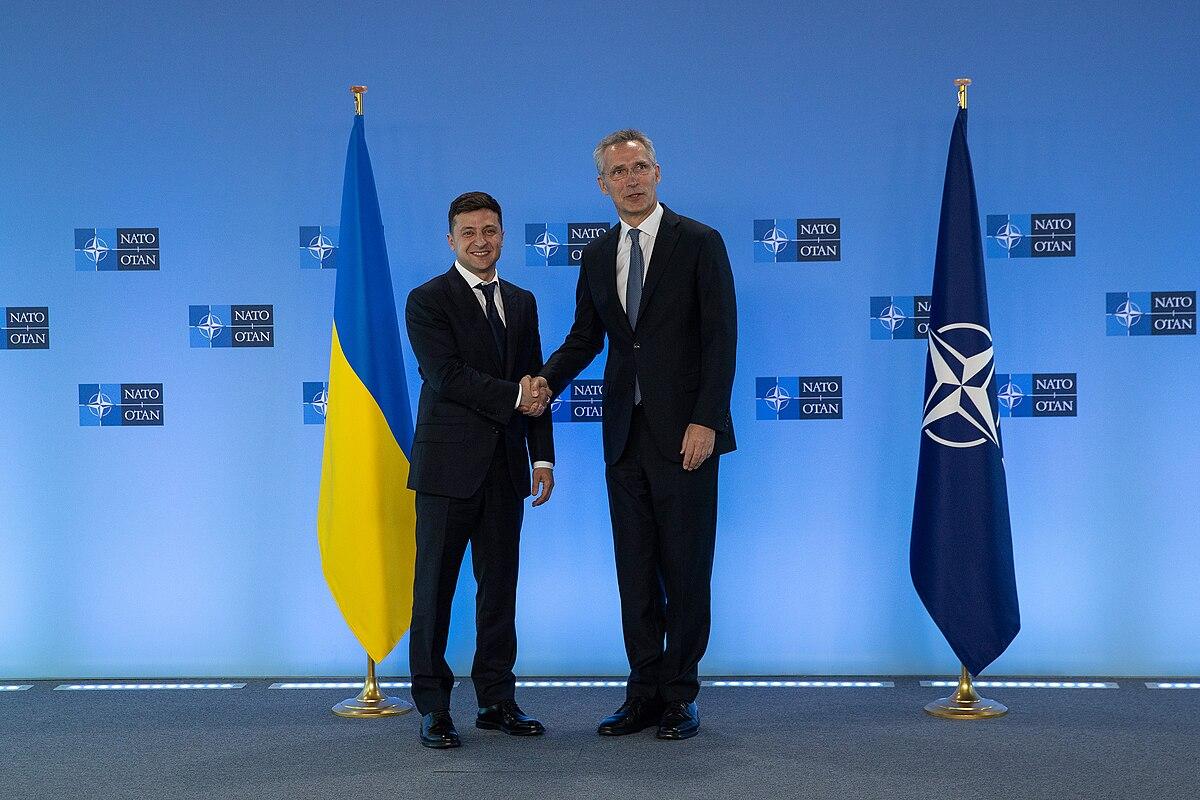Military expert deliberates on Ukraine's future with Caliber.Az journalist Consequences of struggle between Europe and US over chief laurels
Colonel of reserve of the AFU, Ukrainian military expert Oleg Zhdanov shared his views with Caliber.Az journalist on the issues which can turn the tide on the Ukraine front.
- Mr Zhdanov, there was information that security guarantees for Ukraine will be discussed at the upcoming EU summit in December. Could you please share the details of the upcoming discussion?
- We are talking about security guarantees after the end of the war in Ukraine, including admission to NATO. We have asked our partners to provide us with security guarantees for this period. Most likely, we will ask them to prescribe specific actions by the countries. Let me remind you that when the G7 announced these security guarantees, more than 10 countries joined them, ready to guarantee us certain actions, for example, reserving for our needs the necessary amount of ammunition, equipment, fuel, money, and in case of a crisis, if, God forbid, Russia tries to resume hostilities, they will provide us with all this.
- You mean in the post-conflict period?
- Yes. That is, in the medium term at most. It is unlikely that Europe and partner countries in general are ready to drag out this war indefinitely. The leading countries of the EU today already realise that there is no way to distance themselves from this conflict, and prolonging it is not beneficial to anyone, so they will make efforts to end the war as quickly as possible. I understand that Europe wants to take more responsibility for the situation on the European continent.
- Do you think Europe will be able to outbid the US in military supplies?
- Europe has more capabilities than the US. Or, let's say, it has no less equipment and weapons than the US. So this will be a hard lesson for the Americans: either they will join Europe and then the volume and timing of supplies will be taken off the agenda, or they will lose their world domination. Today the US is the hegemon in terms of aid, they are the locomotive and they give a large amount of finance, but not the largest amount of equipment. And the equipment comes from partner countries. Germany wants to double (up to eight billion) military-technical aid to Ukraine, the Netherlands is ready to give two billion, and other EU countries are also announcing an increase in military supplies. They all have warehouses full of weapons.
- Then why did Volodymyr Zelenskyy go to the USA and not to Europe?
- If I understand correctly, Zelenskyy will try to explain to Biden that the US may simply lose its place in the boat. The situation in the US is not easy right now. The sword of Damocles is hanging over Biden. If he makes concessions to the Republicans, he will lose the election, as the issue of the southern border of the US is minus Biden's votes and Trump's votes. Therefore, the American leader cannot make this compromise. Trump is already ahead of Biden by four per cent of the vote, almost a year before the election. The US faces the next challenge - either it goes into Trump's rhetoric of "America for Americans", which is isolationism and loss of world dominance, or it does not, because it is important for the Democrats to maintain world leadership. Thus, the US has an opposed task today. Against this background, Europe is ready to fight for the palm of supremacy on its continent and bypass the US.

- In this context, how relevant are the far-from optimistic statements of the head of the European Commission Ursula Von der Leyen that Ukraine's accession to the EU requires time?
- In my opinion, the prospects of Ukraine's accession to the EU are quite realistic, and I do not see any problems here. Even Viktor Orban's position does not embarrass me.
- Do you consider the Hungarian President's remarks about the off-the-scale level of corruption in Ukraine unjustified?
- The question is who is looking at it from what angle. Remember the situation in Poland when it joined the European Union? Besides, corruption is not the main problem for Ukraine's accession to the EU.
- Then what is?
- The main problem is the adaptation of the legal and legislative framework. I think Ukraine will be accepted into the EU because otherwise, the problematic border of the European Union will stand in Poland, Romania, and Slovakia. But to accept Ukraine into the EU, it is necessary to bring it to the standards of Europe, so that we join their structure, and then the issue of corruption will also be solved automatically. Our authorities are not always in a hurry to follow this line, they either try to make some amendment to the law, which is proposed by the EU (and this amendment changes the essence of the whole law), or they do not hurry with the laws, which are requested by the European Union for a deeper understanding of the processes taking place in Ukraine. This is the main problem hindering Ukraine's accession to the EU. All other issues are solvable.
- What about NATO?
- Rather, it is not realistic. Firstly, we do not know how the war will end and to what extent our territorial integrity will be restored. This is the main stumbling block, in my opinion. Today, one of the demands of the Republican Party of the United States is to formulate what the victory of Ukraine in the war means for the Democrats. This has not been formulated in our country either. And no one will accept a country divided by the front line. This is the first point.
The second point, let's remember Biden's famous speech in March 2021, when he said that NATO will distance itself from this conflict as much as possible, will not join it in any case, so as not to transfer the war into the status of a world war. If Ukraine joins NATO, who will fight Russia? NATO? No, of course not. Therefore, I think we will remain in the status of NATO's best partner.
I believe that we need to create a military-political bloc of collective security with our nearest neighbours. Perhaps it will be the eastern wing of NATO or an integral part of the NATO bloc, but it must be done because otherwise, we will not be able to fight the war. And we are unlikely to be taken into NATO.

- How is the situation on the fronts now?
- The situation on the fronts is extremely difficult. It is complicated by the fact that the Russian Federation has so far managed to gather some troops, and most likely, before the presidential elections in the Russian Federation (that is, before March), the enemy will try to attack us. By the elections, Russia needs success on the front. In principle, the offensive on the part of the Russian Federation is already gaining momentum.
- Can you give an approximate timeframe for the end of the war?
- At least the war will drag on for another year. Everything will depend on the situation in the United States, on supplying us with the necessary amount of military equipment and ammunition. But today our fighting strategy demands reforms and modification.








